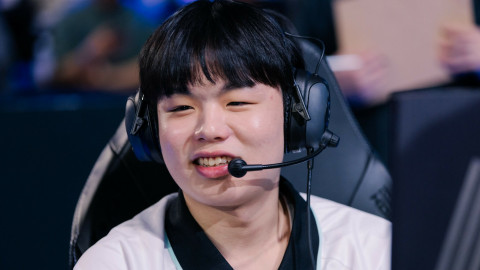
Source: Activision Blizzard
Warzone players expressed frustration at Activision’s latest anti-cheat measures last week. The backlash came after the company announced a new battery of ineffective, surface level solutions to Warzone’s endemic cheating problem.
Over the past several months, players have become increasingly upset with Infinity Ward and Activision’s failure to adequately prevent cheating in their game. The problem is so pervasive, in fact, that a player who was competing in a Warzone Twitch Rivals tournament for $250,000 was DQed after using cheats during the event.
Last week, in response to the outrage, Activision banned 60,000 cheaters and stated their intentions to take a number of actions to improve their cheat detection system. While it is good that Activision acknowledges the problem of cheating, many fans and content creators found their planned actions to be woefully inadequate for addressing the cheating issues which have taken over Warzone.
It’s time for Activision to step up and implement a modern cheat prevention system. If they want Warzone to thrive long-term, Activision needs to implement a more active anti-cheat system that doesn’t rely primarily on reporting to determine problematic actors.
The problem of cheating in free-to-play games
Free-to-play games have always had a terrible reputation when it comes to cheating. When a game has no cost of entry, there is very little that game developers can do to keep players honest, especially when the game is played on a PC. There, a ban lasts only the amount of time it takes a cheater to create a new account.
In the early days of online competitive shooters, cheating was handled with “vote to kick” systems. Team Fortress 2, Combat Arms, and Cross Fire all let a lobby vote to remove a player for a variety of reasons. So if someone toggles on their hacks, the lobby can decide to remove them.

There are some issues with vote to kick. The most notable issue is that it can be abused. Yes, it can be used to remove someone who is cheating or being abusive, but it can also be used to remove a player who is playing well. Anyone who was involved in competitive free-to-play titles back in 2008 probably remembers the pain of popping off, only to be accused of cheating and thrown out of the match by the rest of the players.
Most modern titles don’t feature vote to kick systems. Instead, they rely on either reporting systems or active cheat detection systems to get the job done. However, even when these systems work, the damage is often already done to other players. In a game like Warzone, cheaters ruin the games of dozens — or even hundreds — of other players before being removed. And once their account was banned, they can just spin up their new account and get going again.
From a design perspective, the challenge of Warzone is the same as all popular free-to-play titles: How do you introduce consequences into a game that costs nothing?
A timeline of Warzone’s shadowy battle against cheaters
If you have ever watched a Warzone stream, even for a small stint, you have probably seen a major streamer like Tyler “Ninja” Blevins or Jack “CouRage” Dunlop get eliminated by a cheater.
Warzone was released in March of 2020. The game’s first attempt to purge the cheaters was less than a month later in April. They banned thousands of hackers and introduced some anti-cheat features like matching suspected cheaters together and adding a report-a-player feature to killcam and spectator modes. These measures were something, but they didn’t solve the broader issues.
When the first update didn’t stop the host of active cheaters, Activision tried a new approach in the summer of 2020. On Jul. 24, the company asked players very nicely: “Please do not use unauthorized third-party software to mod or hack.” Given that most cheaters are pretty aware that they are cheating, this had the expected null result. Infinity Ward looked at cheating as an education issue when in reality it is an ethics issue.
Finding that asking politely didn’t work, in August of 2020 Infinity Ward tried yet another new tactic: they went after the source. The company launched multiple lawsuits against cheat developers in the second half of 2020. One such developer, known as CXCheats, posted a message to their Discord which was subsequently posted on Reddit.
“As a result of our lawsuit with Activision, we have agreed to cease development and support for all Call of Duty related products or services sold through the site,” CXCheats said on Discord. “You also should be aware that using third-party tools in Call of Duty may result in the suspension or banning of your account by Activision Publishing, Inc. or the game’s developers. We apologize for any pain we’ve caused to players of Call of Duty.”
Going after CXCheats and other cheat producers like GatorCheats is definitely a good move for Activision Blizzard, since it makes it slightly harder for the average gamer to acquire cheats, but it doesn’t eliminate them from the market completely. Even with the lawsuits in action, the tide of cheaters didn’t subside and continued ruining the integrity of competitive Warzone.
Last week’s update felt like more of the same inaction that has plagued the game over the past year. Players are increasingly frustrated with Activision’s constant announcements that they are going to do something about cheating, but we never see the results of those promises. It’s gotten to the point that some players would rather play on console with cross-play turned off because the problem of PC cheaters is so bad.
Activision needs to accept that this is not a problem that will go away on its own, and they need to understand that this is an existential threat to their game. People don’t want to play games that feel unfair. You may not lose your entire player base overnight, but players will eventually leave your game if they feel like it lacks competitive integrity.

What can Activision do?
Activision has tried a lot of old school techniques for handling their hacker problem. They banned some number of cheaters, they went after the developers, and they even politely asked everyone to stop cheating. However, none of this has been nearly enough to actually address the problem.
Activision needs to look to titles like Counter-Strike: Global Offensive and VALORANT to improve their game’s security system. It’s time for Activision to consider an active anti-cheat system, a prime matchmaking system, or a combination of both.

Implement an active anti-cheat like VALORANT or VAC
Active anti-cheat systems are essential to the long term sustainability of free-to-play titles. VALORANT uses Riot’s new Vanguard anti-cheat system, while Valve uses its own legendary Valve Anti-Cheating (VAC) system. Both systems limit the impact of in-game cheating by automatically detecting third-party software and banning players in real time.
Neither system is perfect, but it does speed up the timeline of player bans, since there is a mechanism to instantly remove players from matches rather than relying on retroactive punishment based on reports.
Of course, adding an anti-cheat system is easier said than done. Active anti-cheat requires a lot of development, and there are also come privacy concerns with them as well. With VALORANT’s Vanguard system, for example, many experts have expressed concern about the fact that it is always running in the background, even when you aren’t playing VALORANT. Yes, you can turn it off, but it is always on by default. And after all that, VALORANT still has plenty of cheaters to deal with.
Valve’s VAC anti-cheat is less invasive to player privacy since it runs at application level. However, as a result it risks letting some cheats that run at kernel level slip through the cracks.
In addition to their VAC system, Valve also relies on reports which feed into their Overwatch system. Overwatch is a cheat review system where volunteers look at footage of suspected cheaters and determine if they broke any rules or not. This is a much slower system than the VAC active anti-cheat, but it works pretty well for filtering out the less obvious cases of cheating.

No anti-cheat system will be perfect, but active anti-cheat systems are preferable to relying on player reports to drive your bans. If a player reported a cheat, then the player who is reporting it is probably already a victim. The damage has already been done.
With more than 100 players in a match, Warzone can’t just rely on a “if you see something, say something” system. That system has clearly failed over the past year to prevent or even slow down the use of cheats. They need to actively police cheating, so an active anti-cheat system is part of the answer.
All of this to say, it’s easy to tell Activision to make an active anti-cheat system — it's much more difficult and complex for the company to actually build and implement one. But if Activision wants Warzone to remain healthy and active for years to come, they need to recognize that cheating is an existential threat to the competitive integrity and long term survival of their Warzone. Implementing some sort of automated system is crucial to this game’s success.
Implement a purchasable prime matchmaking system
As an added layer of protection, Valve instituted their prime matchmaking system after CS:GO went free-to-play in 2018. It is designed to offer players a way to pay for better matchmaking to avoid free-to-play cheaters.
When you start a new account for CS:GO, you will be put in non-prime matchmaking servers by default. You won’t move up to prime matchmaking until you reach level 21 in casual matches. The non-prime matchmaking servers are rampant with cheaters even with the VAC system, especially if you play on cheaters’ favorite maps like Dust 2 or Office. However, you can pay $14.99 USD to gain access to Prime Status instantly.

This system introduces a monetary way of accessing a pool of players with fewer cheaters. If a cheater gets their prime account banned, they will either have to cheat their way up to level 21 without getting caught, or they will have to give Valve $14.99. This won’t eliminate all cheaters in your average match, but it does help limit the problem.
The biggest drawback to the prime matchmaking system is that it can be frustrating for new players who don’t want to shell out $15 to play with non-cheaters. In some ways a system like this feels like the developers are extorting your players, telling them either you give me money or you have to play with the cheaters and unverified accounts. But we are at the point where that kind of monetary barrier may be the most straightforward way to instantly improve the play experience of Warzone’s most loyal fanbase.
Warzone has a lot of trust to rebuild with their community. For that to happen, it is going to require that Activision make serious changes to their anti-cheat system which will genuinely improve the experience of Warzone fans around the world. They don’t have to be trail blazers in this department to make improvements. Valve and Riot have already laid out some solutions that can help limit the impact of cheating. All Activision needs to do is implement one or more of those already tried and true solutions.
-

Aaron is an esports reporter with a background in media, technology, and communication education.
Sort by:
Comments :0





